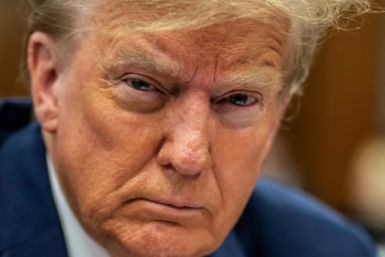Australia Boosts Foreign Aid Budget to $7.7 Billion, Chunk Goes to Asia-Pacific
Australian Foreign Minister Bob Carr announced on Wednesday the launch of a Comprehensive Aid Policy Framework that will serve as guide to the growth of Canberra's foreign aid budget over the next four years. The launch is timely because of the increase of Australia's foreign aid budget to $7.7 billion in 2015-16 from the current $4.9 billion.
The development of a framework was a commitment of the Gillard government in late 2011.
Mr Carr said in a statement that by 2015-16, 70 per cent of its foreign aid will be allocated to Asia and the Pacific which it considers the highest priority region. The minister identified the 12 largest bilateral aid recipients in the region as: Indonesia, Papua New Guinea, Solomon Islands, Afghanistan, Vietnam, the Philippines, Bangladesh, East Timor, Pakistan, Cambodia, Burma and Vanuatu.
He said more than 30 per cent of the aid will be through partnerships with multilateral organizations to expand the reach and influence of Australian aid. These are the World Bank Group, Asian Development Bank, World Food Programme and the United Nations Children's Fund.
Mr Carr said by committing a larger amount to international development efforts, Australia hopes to contribute to real results in decreasing poverty in every region of the world.
"Lifting the last 1.3 billion people out of extreme poverty is even more challenging than achieving the progress of the past 20 years. Many of the people who remain in extreme poverty live in conflict-affected, fragile or remote parts of the world, and are the hardest to reach," Mr Carr said.
He said one fourth of the aid budget would be used on education assistance to help reach the Millennium Development Goals, while 10 per cent of the budget would be coursed through partners with nongovernment organizations.
Among the aims of the aid would be to vaccinate over 10 million poor children against preventable childhood diseases, provide one million mothers access to a skilled birth attendant during birth, safe water access to 8.5 million people, better sanitation facilities and knowledge of hygiene practices to another 5 million people, life-saving assistance for 30 million vulnerable people in conflict and crisis situations and help 4 million children enroll in school and 20 million children obtain better quality education.
Mr Carr said his office will assess progress against the framework through a yearly review which he will submit to Canberra. The first annual review is due by end of October 2012, which the foreign affairs minister said would be made public.
For the 2012-13 federal budget, the Gillard government said it will hike assistance to the poorest East Asian nations to $208.6 million spread over four years. It will be allocated to Burma, Cambodia and Laos to improve these three nations' agricultural productivity and improve health and education services, as well as help Vietnam address it flood and other natural disasters problems. The assistance includes 250,000 student beneficiaries get better education and 60,000 farmers attain freedom from poverty.
Another $3.5 million is included in the 2012-13 federal budget to allow Australian federal police to continue the deployment of 50 officers in East Timor as part of the UN Integrated Mission in Timor-Leste, while it will also invest $190.3 million over two years to continue Australia's aid programme in Afghanistan.
On Tuesday, Treasurer Wayne Swan unveiled $33 billion in savings for the federal budget and promised to make tougher budget cuts over the next 12 months to achieve the government's promise of a $1.5-billion budget surplus. To achieve that, the government junked at the last minute its promised business tax cuts to shoulder the cost of voter handouts in a bid to explain the impact of the carbon tax to Australians.






